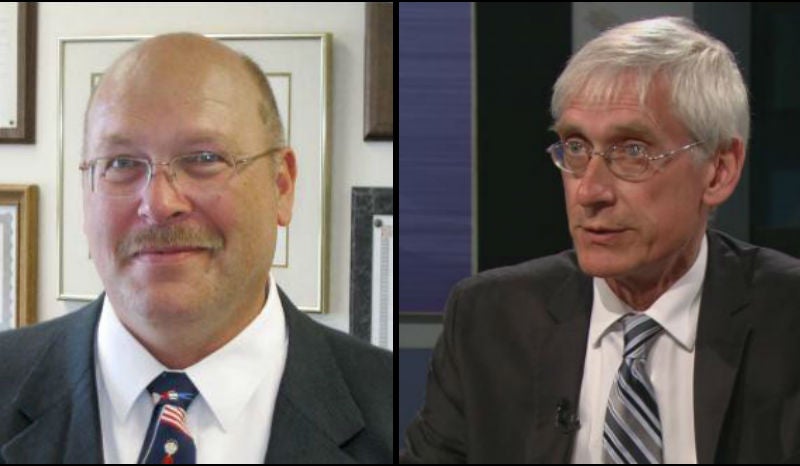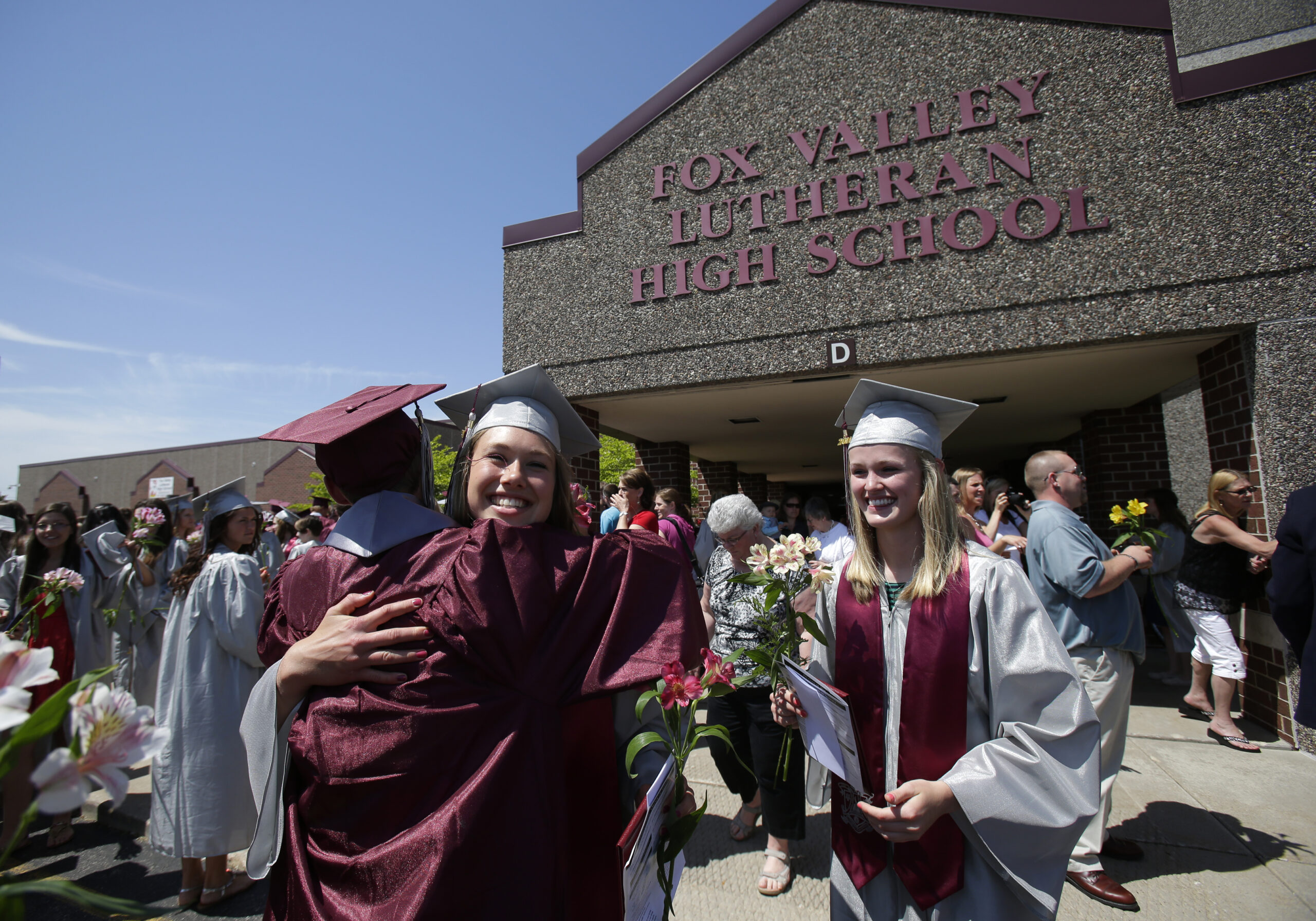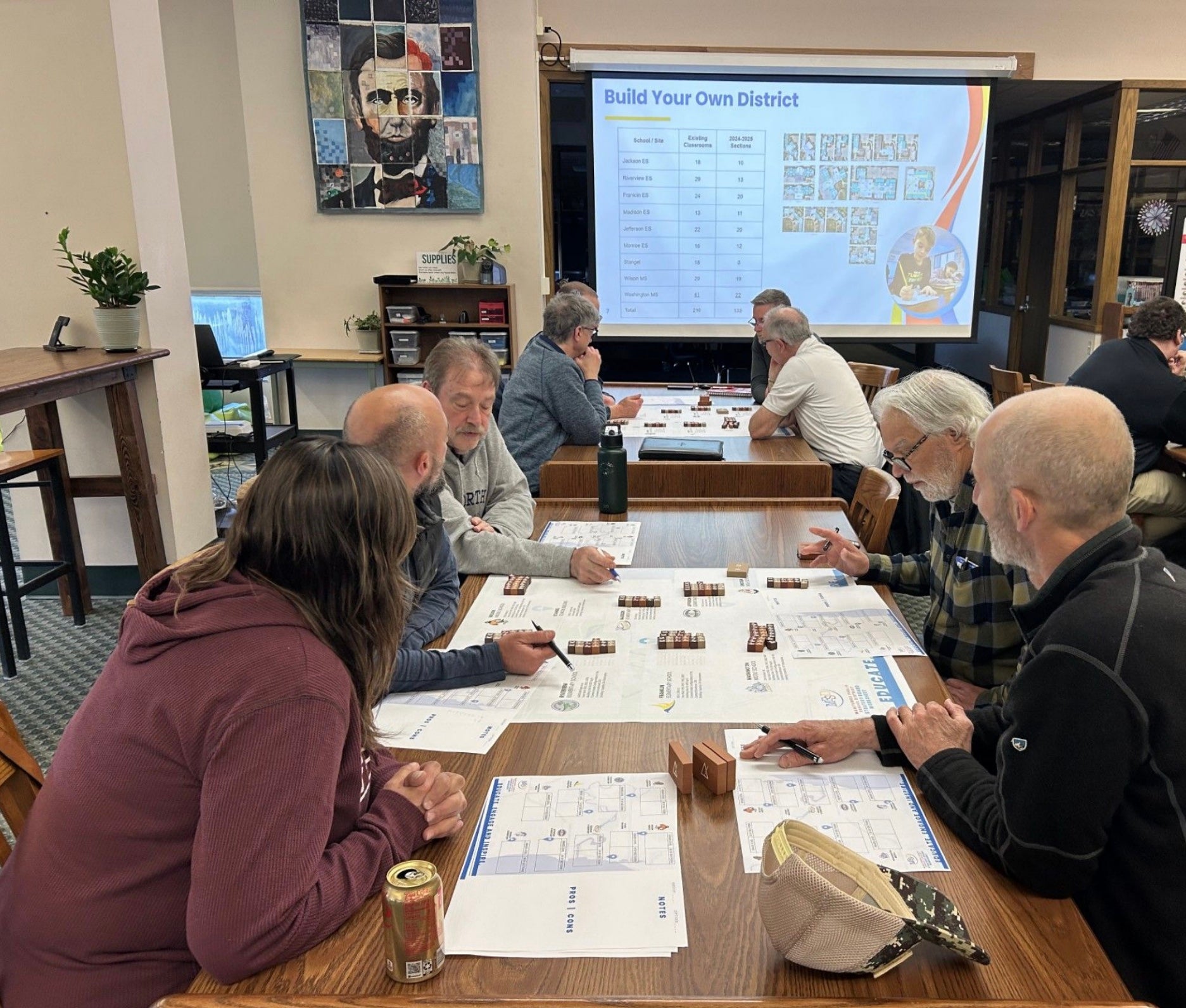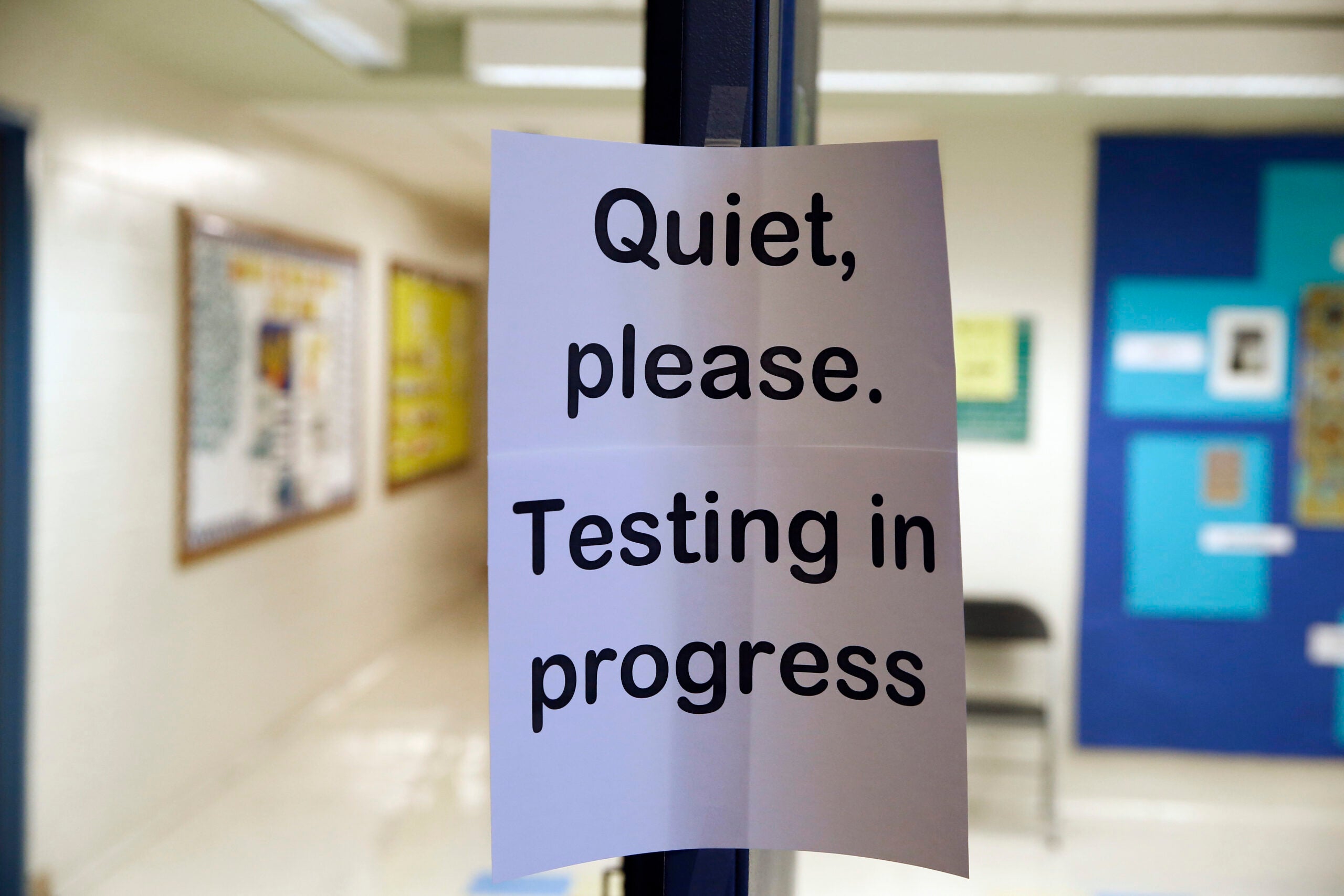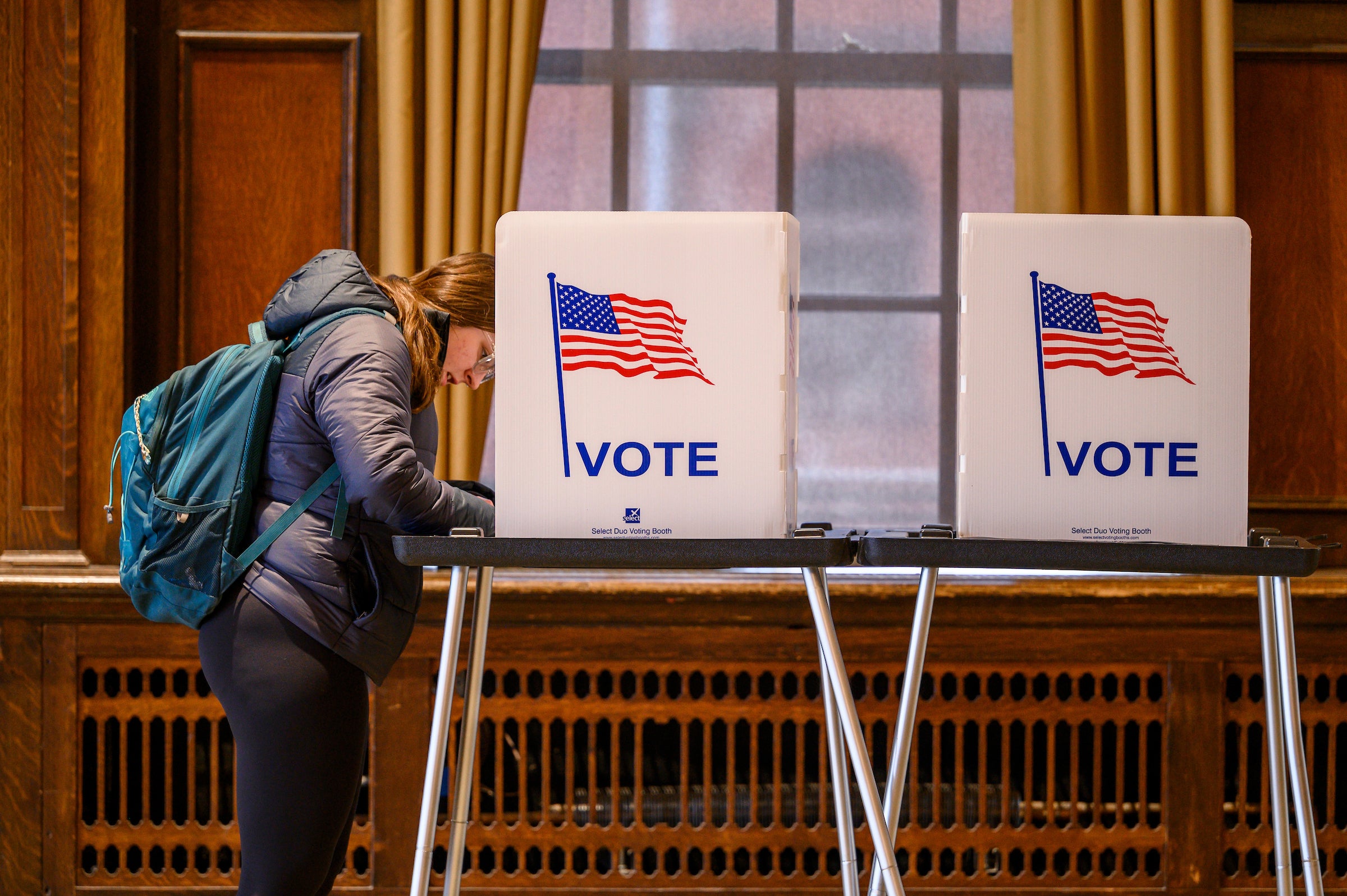Tony Evers and Lowell Holtz will face off for Wisconsin’s schools superintendent seat in the April 4 election. The two knocked out a third candidate, John Humphries, in Tuesday’s nonpartisan primary.
Incumbent Evers is seeking a third term as state superintendent, a position that will lead the state Department of Public Instruction. Holtz ran for the office once before in 2009.
At 11:25 p.m. with 98 percent of precincts reporting, Evers had about 69.6 percent of the vote, Holtz 23 percent and Humphries 7.4 percent.
News with a little more humanity
WPR’s “Wisconsin Today” newsletter keeps you connected to the state you love without feeling overwhelmed. No paywall. No agenda. No corporate filter.
Evers said he attributed his wide margin to the focus of his campaign “on the needs of our 860,000 public school kids and I think people in Wisconsin respect the job we have been doing in that arena and I think they’re looking forward to me continuing to work for those kids and get them the resources they need to succeed.”
In a written statement, Holtz thanked his supporters.
“I am humbled by their faith in my ability to work as an advocate for every student in our state,” he said, “and correct the extensive vulnerabilities of Wisconsin’s education bureaucracy in the general election.”
While the office is technically nonpartisan, Evers commonly aligns with the state’s Democrats and his financial backers include teacher and administrator unions across the state. Holtz has received backing from county Republican and Tea Party groups.
Holtz is a former superintendent at Whitnall, Beloit and Palmyra-Eagle school districts and Wisconsin elementary school principal of the year while Humphries is the Dodgeville School District’s director of state and federal programs and a former consultant.
Evers said Holtz had turned the campaign so far into a campaign about vouchers, something Evers said he was trying to avoid.
In an interview earlier this month, Holtz said he believed an expanded program for private school vouchers was the direction Wisconsin is headed in and that he welcomed the idea of a voucher in every backpack. He also said strong public schools have to be part of the education system because there aren’t enough private choice schools to serve most of the state’s students.
Evers also questioned Holtz’s ethics. Last week, Humphries and Holtz traded accusations over an alleged proposal that one of the men drop out of the race in exchange for a guaranteed position at the Department of Public Instruction.
“People in the state value trustworthiness and truthfulness and integrity and I thought both of my opponents in the last couple of days did not show that,” Evers said.
But Holtz is betting his conservative credentials will gain him enough to support to unseat Evers. In addition to Republican groups, conservative advocacy group Wisconsin Family Action endorsed Holtz in the primary.
“One of my first items on my platform is restoring safety and discipline to all schools. I really believe in local control. And last but not least, I think it’s really important to empower teachers to do what they do best and that’s teach,” he said in an interview earlier this month.
He’s in favor of scrapping the state’s teacher evaluation system and a database to track student progress through the state’s education system. He would also strip away statewide standardized tests that he said duplicate more useful, nationally benchmarked exams most schools use through the year to gauge student progress.
Holtz would also scrap the Common Core Standards adopted by Wisconsin and or than 40 other states. The standards are guidelines for what students should learn in each grade in English and math. Holtz called the standards federal overreach and said it should be up to district leaders and parents to decide what students should learn.
Evers countered that the Common Core was adopted by districts across the state one-by-one.
During his eight years in office, Evers said he’s proudest of raising the bar for Wisconsin students.
“We’ve increased expectations for kids and at the same time been able to keep our achievement level level and have it slowly increasing, I’d certainly like to have it increase more,” he said.
In his next term, Evers would push for more state funding for schools, support for students’ mental health, and a prescription for boosting student performance that moves outside school walls.
“What, as a state, we have to do is be partners with struggling school districts, engage the community,” he said in an interview earlier this month. “But also recognize this is more than a school issue, this is a community issue and a state issue. Whether it’s about race or poverty, we have to address a lot of those things simultaneously.”
Evers doesn’t buy that voters think of schools in partisan terms. He pointed to the fact that Gov. Scott Walker’s proposed budget adopts many of Evers’ own ideas and that bipartisan support swept him into office in the last two races.
“You can’t win 69 out of 72 counties without some Republicans voting for you,” he said.
In the previous three primaries for state schools superintendent, turnout was less than 6 percent of the voting population, according to The Associated Press.
Aside from casting a vote for state schools superintendent, voters could see local races and referendums on the ballot on Tuesday. Wisconsin Supreme Court Justice Annette Ziegler was up for re-election, but Ziegler didn’t face a primary as she is running unopposed for her second 10-year term on the court.
Wisconsin Public Radio, © Copyright 2025, Board of Regents of the University of Wisconsin System and Wisconsin Educational Communications Board.

